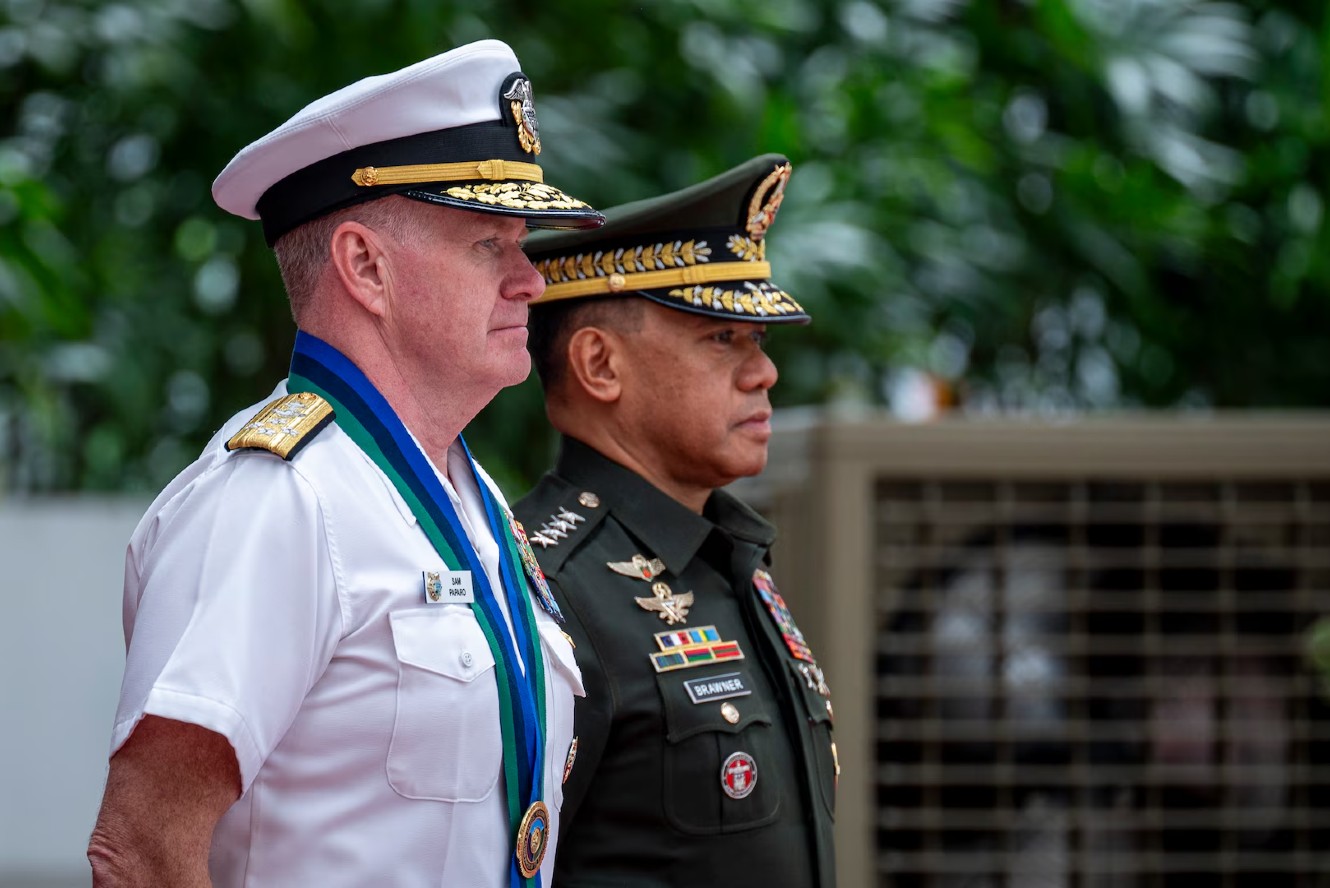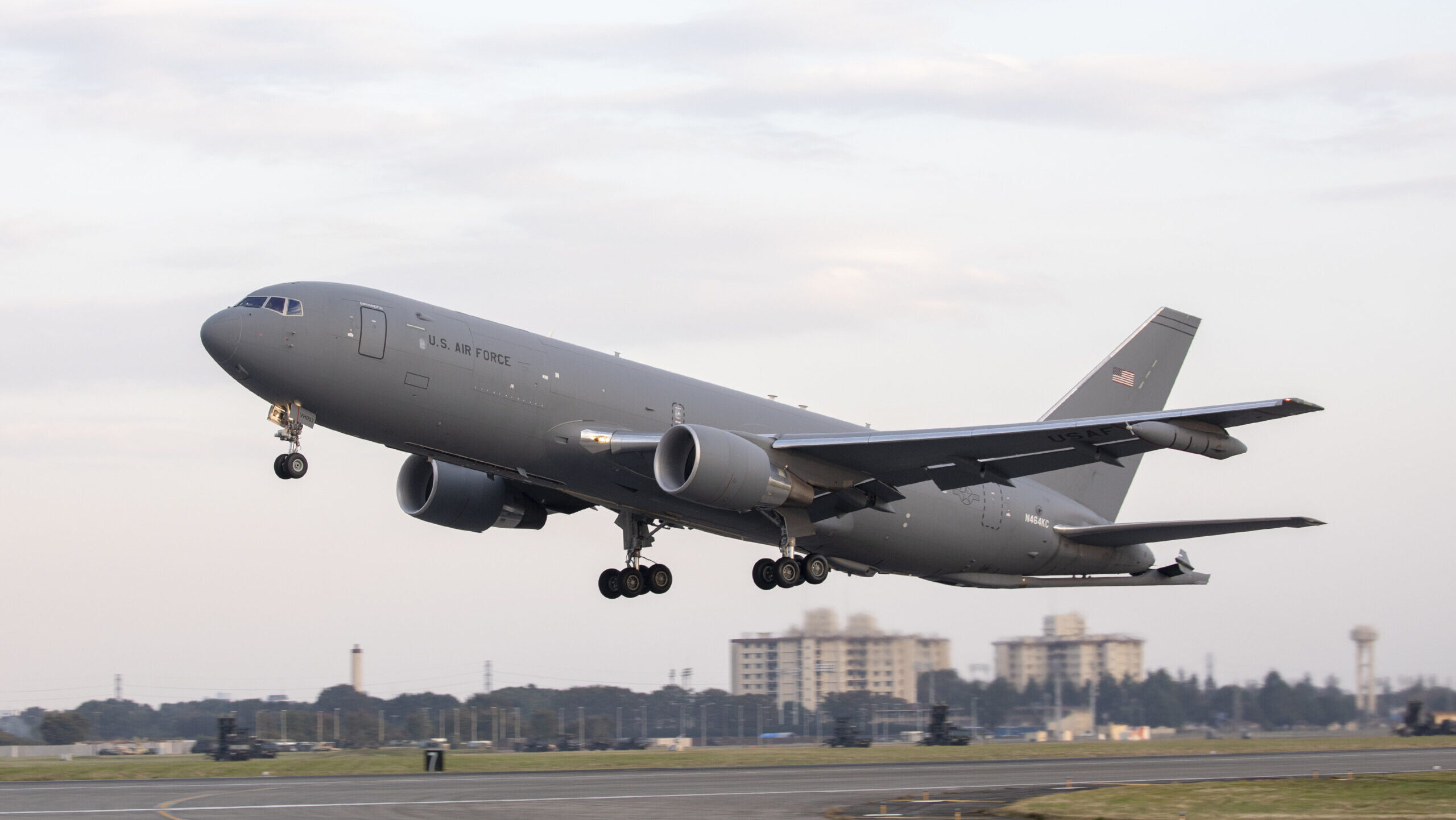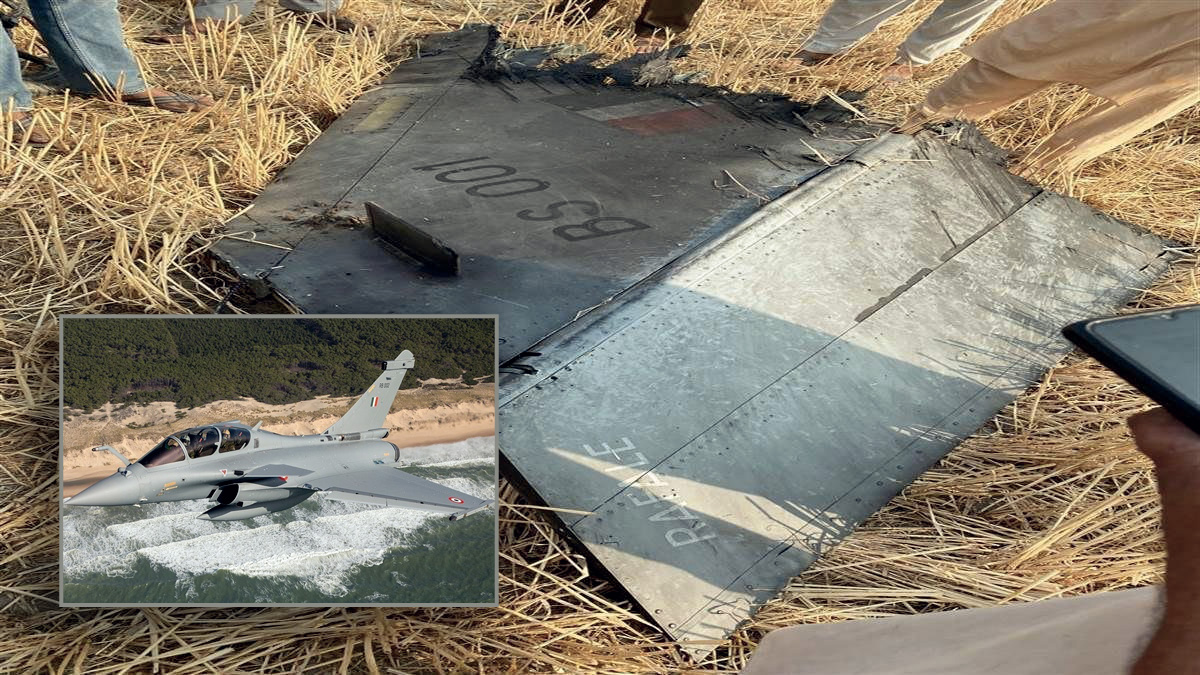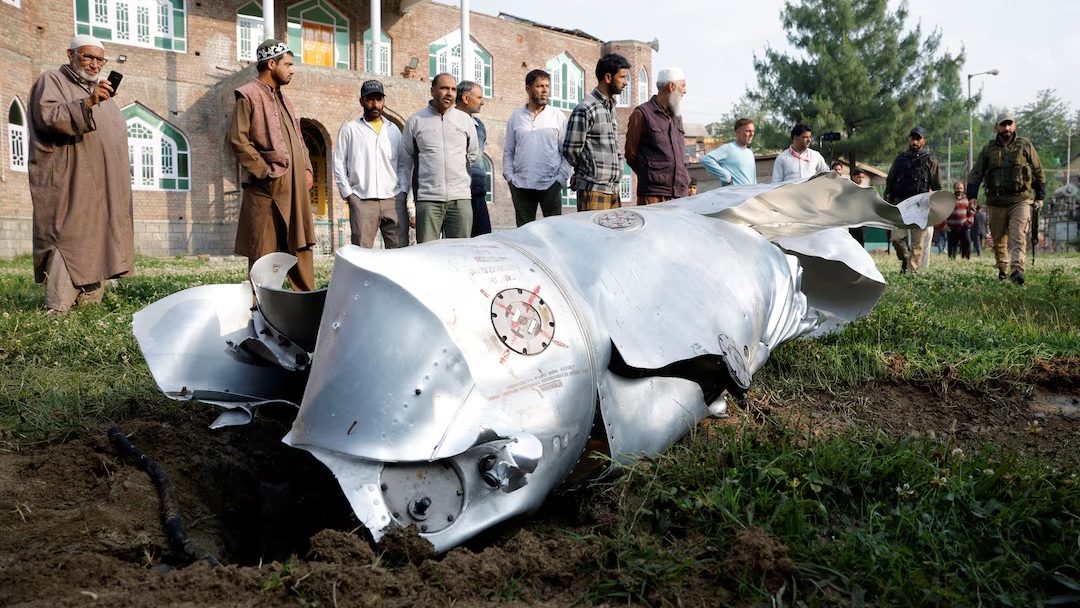A strategic proposal: Selling Kaliningrad to Germany, brokered by the USA
“The US should act as a broker to facilitate Russia’s sale of Kaliningrad to Germany, for $50 billion, ideally in a monetary exchange, liquid asset transaction or cash settlement,” writes Lt. Col. Jeffery M. Fritz in this op-ed.


US President Donald Trump (2L) and Russia’s President Vladimir Putin wait ahead a meeting in Helsinki, on July 16, 2018. (Photo credit ALEXEY NIKOLSKY/AFP via Getty Images)
Russian strategic thinking is exemplified by chess players like Garry Kasparov and Ian Nepomniachtchi. This prowess is evident in Russia’s historical decisions, such as the sale of Russian America (modern-day Alaska) after the Crimean War. Tsar Alexander II, facing financial strain and defensive concerns, sold the territory for $7.2 million ($153.5 million today). In 1867, Alaska was considered a “hanging piece” relatively undefended and vulnerable to capture without sufficient compensation. Selling Alaska was a “resourceful play.”
In 2025, after three years of conflict, Russia faces similar financial strain and defensive concerns with the isolated Kaliningrad Oblast. This exclave, covering 15,124 square kilometers (0.88 percent the size of Alaska), is surrounded by NATO members Poland, Lithuania, Sweden, and Finland. Lithuania’s February cut to the electrical grid further isolates Kaliningrad, exacerbating its precarious position.
As the USA facilitates peace talks between Ukraine and Russia, this is an ideal moment to address the Kaliningrad question and promote reconciliation. Considering the current global circumstances, it is essential to strive for a game-changing and truly bold proposal: The US should act as a broker to facilitate Russia’s sale of Kaliningrad to Germany, for $50 billion, ideally in a monetary exchange, liquid asset transaction or cash settlement.
Yes, it seems unconventional at first glance, but this solution offers a pragmatic approach to resolving the challenges posed by Kaliningrad’s isolation and vulnerability, while simultaneously reducing regional tension, complementing both President Donald Trump and President Vladimir Putin’s stated desire to “improve bilateral relations between the USA and Russia.”
Why would Russia consider such a divestiture? Historically, the Kaliningrad Oblast has held significant strategic military importance, serving as a warm-water port hosting the Baltic Fleet and advanced missile systems. This position could be likened to an “advanced post” in chess, providing a strategic advantage deep in the opponent’s territory. Moreover, the Oblast has been a crucial asset for exerting geopolitical leverage over the Baltic States and Poland. Its presence has complicated NATO’s defense planning, and selling Kaliningrad would likely diminish Russia’s ability to leverage its location. Finally, the Oblast holds historical significance and national pride for Russia. Surrendering Kaliningrad could be perceived as a loss of historical legacy, which may be unacceptable to both the Russian populace and leadership.
However, Kaliningrad’s position makes it vulnerable in a conflict, especially with Finland and Sweden now in NATO. The Oblast could be seized within hours or days, with secret documents, technology, and communication equipment exploited. Approximately 12,000 Russian soldiers stationed in Kaliningrad could be captured, akin to a “hanging piece” in chess.
$50 billion should cover compensation for the Kaliningrad Chkalovsk Air Base and the Baltic Fleet Headquarters relocation costs. Personal and private property, including corporations like Avtotor, Yantar Shipyard, and Viktoriya Baltiya, should remain with their owners. This approach ensures that existing businesses and economic activities continue without disruption. State-owned companies such as the Kaliningrad Amber Combine would be up for detailed negotiations. The compensation could also be used to purchase icebreakers, although the warming Baltic Sea reduces the necessity of maintaining an ice-free port each winter.
In 1997, the Russian philosopher Aleksandr Dugin suggested in his still-influential Foundations of Geopolitics returning the Kaliningrad Oblast (East Prussia) to Germany to give up the last territorial symbol of the terrible fratricidal Second World War. Selling Kaliningrad offers Russia an opportunity to reconcile its shared history with Germany, gain much-needed capital, and reduce strategic vulnerability.
During my years in Germany as a student and working at German Army Command in Strausberg, the Germans’ efforts to distance themselves from their Nazi past was evident, yet the legacy of Königsberg (now Kaliningrad) remains ingrained and alive in German culture. For instance, every major city in Germany has a Königsberg Street, while Königsberger Marzipan and Königsberger Klopse are popular specialties that reflect this historical connection. When I served on the Bartlett High School Debate Team in Alaska, Immanuel Kant would often be brought up due to his Categorical Imperative, and when I studied the German language in Anchorage, we would mournfully observe the art of Käthe Kollwitz, both of whom were residents of the once Königsberg.
To this point, Germany has shown little public interest in reclaiming Kaliningrad. However, if the USA were to step in as a mediator, much like it did during the Two Plus Four Agreement, which facilitated the reunification of Germany in 1990, the dynamics could change. The diplomatic effort, with the USA brokering discussions between Germany, Russia, and other relevant stakeholders, could potentially open the door to new possibilities for Kaliningrad’s status.
Following the Two Plus Four Agreement, Germany’s reunification efforts involved spending between €1 and €2 trillion on infrastructure modernization, economic development, and environmental restoration. This experience positions Germany well to manage the integration and revitalization of Kaliningrad. Western Germany’s genuine efforts to rebuild Eastern Germany, along with the unified nation’s preservation and restoration of Soviet war memorials like those in Treptower Park and the Tiergarten, reflect a commitment to historical preservation and serve as reminders of World War II sacrifices.
Also, Germany’s respect for its Sorbian population, a West Slavic ethnic group with their own language and traditions, is evident in Brandenburg. Sorbian culture is actively preserved through bilingual signage, cultural festivals, and educational programs. This demonstrates Germany’s ability to support minority communities and integrate diverse populations, which is crucial for managing Kaliningrad’s integration.
If the proposal is accepted, then Kaliningrad residents should have the option to receive German passports, retain Russian passports, or be issued alien passports for visa-free travel to Russia and Belarus. This respects their rights, offering citizenship and travel options that maintain Russian connections while integrating into the EU, fostering a smooth transition and regional stability.
If the USA brokers a deal to sell Kaliningrad to Germany, it would significantly enhance its diplomatic influence, showcasing its ability to facilitate complex international negotiations. This mediation would strengthen NATO unity by reducing tension with Russia, leading to a more cohesive alliance. Additionally, the deal could open up new economic opportunities for American businesses in Kaliningrad, boosting infrastructure and trade.
This proposal offers Russia, Germany, and the USA a mutually beneficial agreement that promotes peace and stability in Europe. Selling Kaliningrad to Germany, brokered by the USA, allows Russia to alleviate financial strain, reduce strategic vulnerabilities, and reconcile historical tensions. Germany gains a culturally significant territory, enhancing its historical connections and economic potential.
This move transforms a geopolitical challenge into a resourceful play, akin to a well-executed chess move. Let us seize this moment to create a lasting legacy of peace and cooperation.
Lt. Col. Jeffery M. Fritz is an instructor at the Baltic Defence College, Estonia, assigned to U.S. Army Security
Assistance Command (USASAC).
The views expressed in this article are the author’s and do not necessarily reflect the opinions of the Baltic Defence College or the US Army.

























































































































































